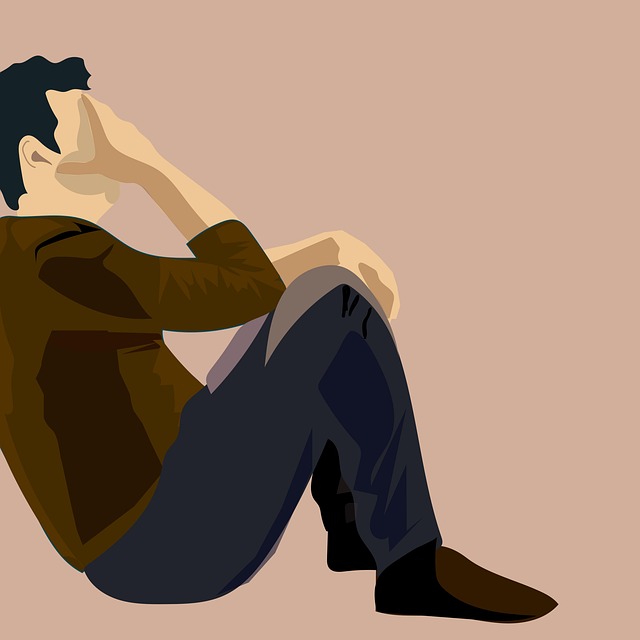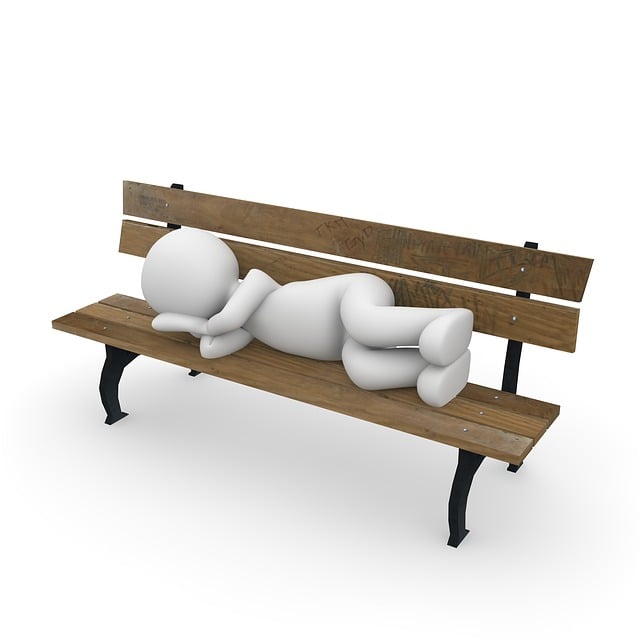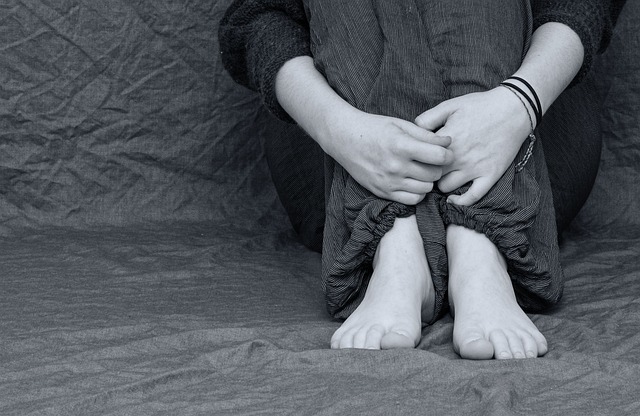Depression among seniors (65+) is a global concern, affecting 7% worldwide. Age-related factors like isolation, chronic illness, and loss contribute to this unique form of depression. Barriers to treatment include stigma, perception of normal aging, and physical limitations. Early detection by caregivers is crucial; recognizing symptoms paves the way for professional help. Specialized depression treatment programs use tailored approaches like CBT, IPT, mindfulness therapies, and group therapy. Integrative therapies combining conventional medicine with CAM are gaining popularity. Building a strong support network including family, community, and geriatric mental health professionals enhances recovery outcomes.
Depression among seniors is a growing concern, with unique challenges that often go unnoticed. This comprehensive guide explores the multifaceted issue of senior depression, offering insights into its prevalence, recognition, and effective depression treatment programs. From understanding the specific signs to delving into diverse therapy approaches, including psychotherapy, medication management, and integrative treatments, we provide a roadmap for addressing this silent epidemic. Additionally, we emphasize the significance of building robust support systems for elderly individuals navigating depression.
Understanding Senior Depression: Prevalence and Unique Challenges

Depression among seniors is a growing concern, with an increasing number of older adults facing this mental health challenge. It’s important to understand that senior depression isn’t merely a continuation of younger adult experiences; it presents unique issues due to age-related factors. The prevalence of depression in later life is significant, with studies indicating that it affects approximately 7% of individuals aged 65 and over globally. This rise can be attributed to various factors such as social isolation, chronic illnesses, and the loss of loved ones, all of which are more common among seniors.
Senior citizens often face barriers when seeking depression treatment programs. They may feel reluctant to reach out for help due to societal stigma or a perception that depression is a normal part of aging. Additionally, physical limitations can make accessing mental health services challenging. Customized support is essential; tailored interventions considering the unique circumstances and needs of seniors are more effective in managing their symptoms.
Recognizing the Signs: Identifying Depression in Seniors

Depression is a common but often overlooked health concern among seniors. Recognizing the signs is crucial in initiating effective depression treatment programs tailored to their unique needs. While older adults may experience symptoms differently, several indicators can signal a potential depressive episode. These include persistent feelings of sadness or loss of interest in activities once enjoyed, significant changes in appetite or weight, disrupted sleep patterns, fatigue, difficulty concentrating, and thoughts of death or suicide.
Caregivers and loved ones play a vital role in identifying these signs. They should pay attention to any sudden changes in behavior, mood, or daily routines. Regular conversations about their well-being can also help in early detection. By recognizing these symptoms, individuals can encourage seniors to seek professional help, which is the first step towards managing and overcoming depression effectively.
Types of Depression Treatment Programs for Elders

Depression treatment programs for elders encompass a variety of approaches designed to cater to the unique needs and challenges faced by seniors. Cognitive Behavioral Therapy (CBT) is a commonly used method, focusing on identifying and changing negative thought patterns and behaviors associated with depression. This evidence-based practice has shown significant effectiveness in alleviating symptoms among older adults. Another popular approach is Interpersonal Psychotherapy (IPT), which addresses emotional issues related to relationships and social situations, often targeted at those experiencing loneliness or bereavement.
Additionally, Mindfulness-Based Therapies gain traction for their ability to enhance mental well-being by promoting present-moment awareness and non-judgmental acceptance of thoughts and feelings. Group therapy sessions offer a supportive environment where seniors can share experiences, build connections, and learn from one another. Combining individual counseling with group support creates a comprehensive depression treatment program tailored to the specific needs and preferences of elderly individuals.
Psychotherapy Approaches for Elderly Individuals with Depression

Depression counseling for seniors often involves specialized psychotherapy approaches tailored to address the unique challenges faced by elderly individuals. Cognitive Behavioral Therapy (CBT) is a widely recognized and effective method, focusing on identifying and changing negative thought patterns and behaviors that contribute to depression. By teaching coping strategies and problem-solving skills, CBT empowers seniors to manage their symptoms and improve overall well-being.
Another popular approach is Interpersonal Therapy (IPT), which emphasizes the role of relationships in mental health. IPT helps seniors explore and resolve issues related to social isolation, grief, or conflicts with family members. This therapy provides a safe space to discuss interpersonal challenges, fostering better communication and support networks, which are crucial components in depression treatment programs for seniors.
Medication Options: Antidepressants and Their Management for Seniors

Antidepressants play a significant role in managing depression among seniors, offering a crucial component of comprehensive depression treatment programs. These medications work by altering brain chemistry to improve mood and alleviate symptoms. However, their use in older adults requires careful consideration due to potential side effects and interactions with other medications. Geriatric psychiatrists or healthcare professionals specializing in senior mental health are best equipped to prescribe and manage these drugs, ensuring optimal dosages tailored to individual needs.
The management of antidepressants for seniors involves close monitoring and regular check-ins. Healthcare providers assess not only the effectiveness of the medication but also any adverse effects, which may include changes in appetite, sleep disturbances, or reduced sexual drive—common challenges among this demographic. Adjustments to dosage or a switch to an alternative medication may be recommended based on these findings, aiming to provide effective depression treatment while minimizing potential risks.
Integrative Therapies: Alternative Treatments Gaining Popularity

In recent years, as awareness about mental health grows, so does the demand for alternative treatments in depression counseling. Integrative therapies have emerged as a popular option for seniors seeking effective depression treatment programs. These therapies combine conventional medical practices with complementary and alternative medicine (CAM) approaches to offer a holistic healing experience. By incorporating techniques such as mindfulness meditation, yoga, acupuncture, and herbal remedies, these integrative programs aim to address the physical, emotional, and spiritual aspects of an individual’s well-being.
The popularity of integrative therapies is driven by their ability to provide personalized care that caters to each senior’s unique needs and preferences. Unlike traditional depression counseling, which often focuses solely on medication or psychotherapy, these alternative treatments encourage a more comprehensive approach. They acknowledge the complex interplay between physical health, stress management, and emotional well-being, offering seniors tools to take control of their mental health in a supportive and non-judgmental environment.
Building Support Systems: Family, Community, and Professional Networks

Building a robust support system is integral to effective depression treatment programs for seniors. Family plays a significant role, offering a sense of belonging and emotional comfort. Regular check-ins with close relatives can provide regular encouragement and help monitor changes in mood or behavior. Community connections are also vital; senior centers, support groups, and volunteer opportunities enable social interaction, combat loneliness, and foster a sense of purpose. These networks offer peer support and understanding, complementing professional depression counseling.
Additionally, professional networks are essential components of comprehensive depression treatment. Therapists, counselors, and psychiatrists equipped with expertise in geriatric mental health can provide specialized care tailored to the unique needs of seniors. They offer evidence-based treatments, such as cognitive-behavioral therapy (CBT), which has proven effective in managing depression. By integrating family, community, and professional support systems, seniors can navigate their mental health journeys with increased resilience and improved overall well-being.
